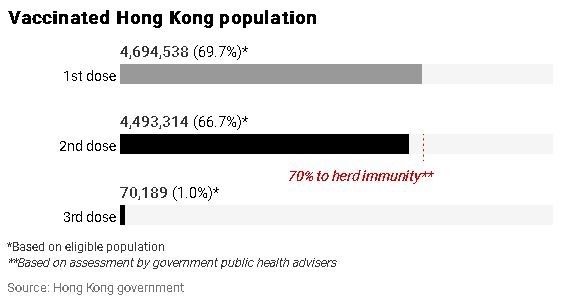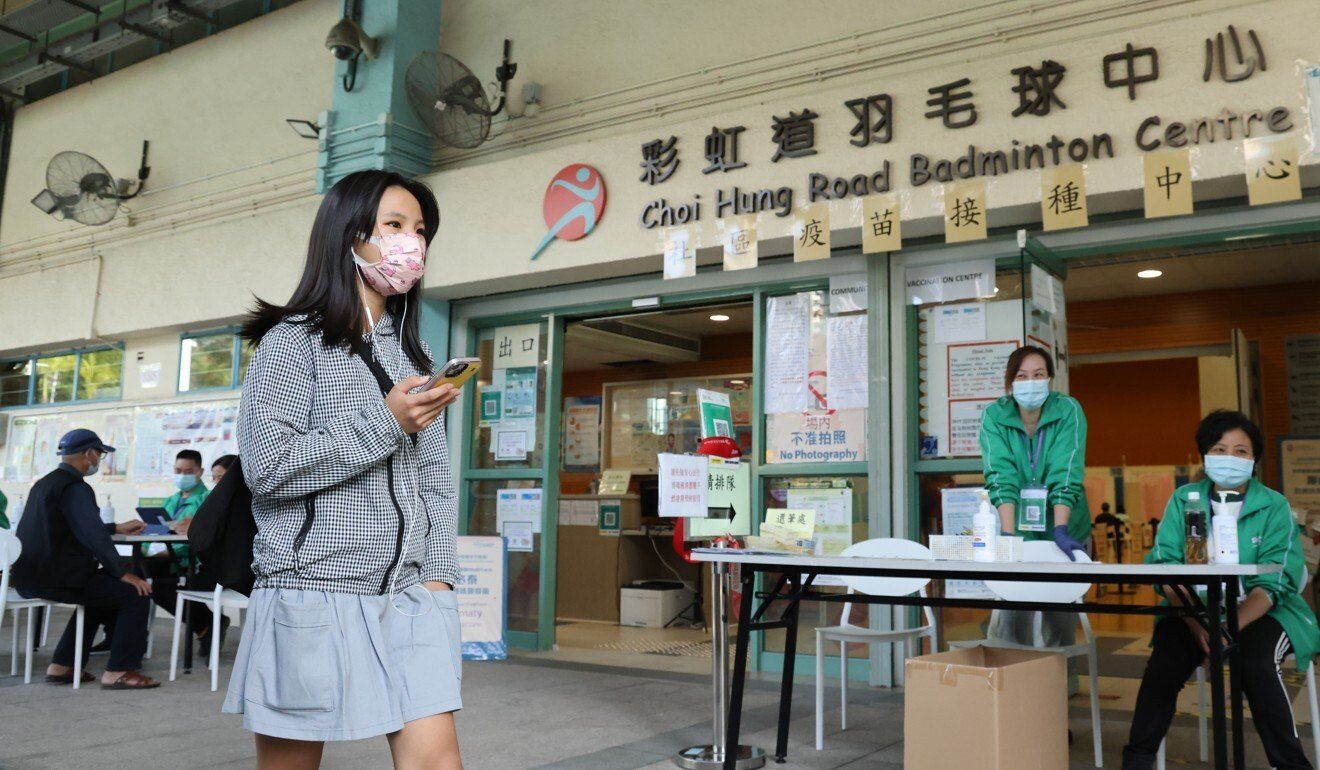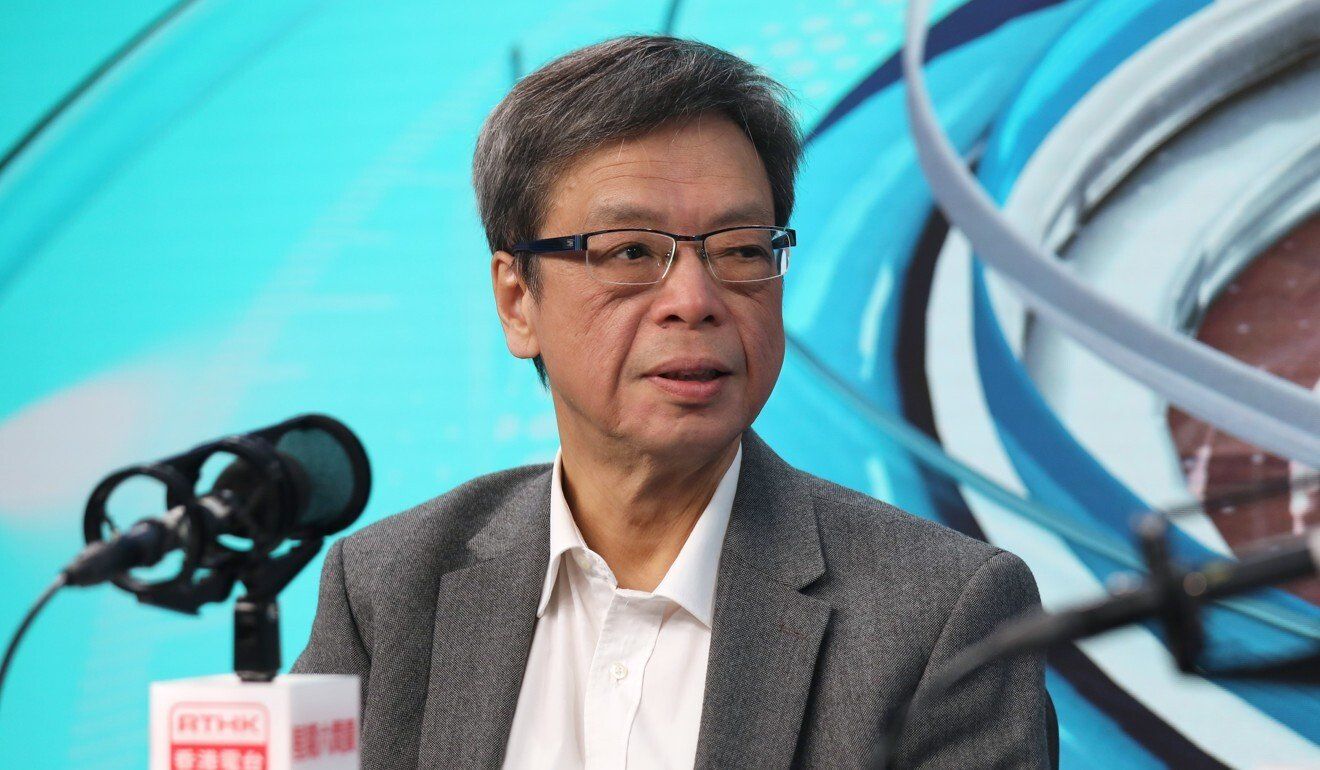Hong Kong News

Hong Kong panel says 12-17 age group should get Sinovac Covid-19 jab first
Medical experts advising the Hong Kong government have recommended the Sinovac Covid-19 vaccine be offered to the 12-17 age group before it is rolled out to younger children, while authorities revealed for the first time they have bought an extra 1 million doses of the BioNTech shot.
The Centre for Health Protection’s joint scientific committee made the call on Friday, after an advisory panel on Covid-19 vaccines earlier in the week endorsed lowering the minimum age for receiving the Chinese-made Sinovac shot from 18 to three years old.
Professor Lau Yu-lung, chairman of the scientific committee on vaccine-preventable diseases, said giving shots to younger children for the first time had to be done in a gradual manner, taking into account parents’ worries.
“It could be the first time for parents and family members of primary and kindergarten pupils to learn about vaccination for smaller children,” Lau said. “We will need to listen to the concerns of those parents.”
He called it a “natural progression” to move on gradually from secondary school pupils to those in kindergartens, saying the decision made “a lot of sense”.
“When the new school term starts next year, it might be a good time to start vaccinating primary school pupils,” Lau said, adding the Department of Health would also need time to educate parents of younger children on vaccination matters.
In the long run, it would be essential to vaccinate those children when the city hoped to fully reopen its border to the outside world, Lau said.
He said data reviewed by the joint committee showed the jab was safe and reliable for those aged three to 17, and there were no worrying signs.
Lau said about 130 million doses of the vaccine had been given to children of that age group in mainland China and overseas, including at least 6 million to those between three and 11.
Children, like adults, are recommended to receive two doses of the vaccine, 28 days apart. But it was possible they would also need extra protection from a third dose, six months after the second one, Lau said.
The suggested approach is similar to that of the mainland, where children aged 12 to 17 were the first minors to be vaccinated after the jabs were approved for use on them in June. The vaccine was later extended to three- to 11-year-olds in different provinces.
Dr Chuang Shuk-kwan, head of the centre’s communicable disease branch, said the government would draft details of the relevant arrangements and announce them as soon as possible.
Education minister Kevin Yeung Yun-hung said his bureau would introduce appropriate changes in school operations to facilitate any arrangements.

The panel’s recommendation came hours after the government revealed it had received an extra 1 million doses of the German-made BioNTech vaccine.
The arrival of the batch coincided with an infectious disease expert calling on authorities to expand a booster drive and cover those who had received their second BioNTech shot six months ago or earlier.
The booster programme has already been extended to residents who have had two jabs of the Sinovac vaccine.
“The purchase of 1 million extra doses of the Comirnaty vaccine is for the gradual implementation of third dose Covid-19 vaccination,” a government spokesman said, using the drug’s brand name.
“We appeal to members of the public who have not received their first and second vaccine doses to do so early to protect themselves, their family members and the community.”
 One of the city’s BioNTech vaccination centres.
One of the city’s BioNTech vaccination centres.
Hong Kong began giving a third shot to the immunocompromised and other high-risk groups such as the elderly and certain workers on November 11.
The government, citing capacity and service demand, on Thursday announced the offer would be expanded next week to everyone who had received a second Sinovac jab at least six months ago.
But that plan did not cover non-high-risk groups who had taken two doses of the BioNTech vaccine, which is considered more effective against the virus, particularly the now-dominant Delta version.
The BioNTech vaccine is available to those aged 12 and above.
Dr Leung Chi-chiu said he wanted the same for all BioNTech recipients.
“Because everyone was vaccinated at a different time, you can’t possibly deal with the Sinovac recipients before the BioNTech ones, as it’s not yet time for many Sinovac recipients to get a third dose, while for some BioNTech takers, it might be time already,” he told a local radio programme.
 Dr Leung Chi-chiu on Friday said he believed those who had taken two
doses of the BioNTech vaccine should be given the option of a third
shot.
Dr Leung Chi-chiu on Friday said he believed those who had taken two
doses of the BioNTech vaccine should be given the option of a third
shot.
Government scientific advisers previously recommended immunocompromised people, regardless of their chosen vaccines, get a third dose after four weeks of full vaccination, as their antibody and immunity levels would have begun to wane. Other vulnerable groups such as the elderly and people at high risk of exposure should get a third dose six months after the second.
Hong Kong originally ordered 7.5 million doses of each of the two vaccines. The government previously estimated 1.86 million people fell into high-risk categories designated for priority access to a booster but only about 1.65 million BioNTech doses from the original stock remained.
The total number of Sinovac jabs administered is 3.38 million.
As of Friday, 70,189 people had received a booster shot, while 4.69 million people, or 69.7 per cent of the eligible population, had taken at least one dose of a vaccine.
Health officials reported just one imported coronavirus case on Friday, an arrival from the Philippines. The local tally stood at 12,396, with 213 related deaths.
Among the fewer than 10 preliminary-positive cases was a 31-year-old domestic helper from the Philippines who had already completed her 21-day quarantine. Her case triggered an overnight lockdown at Way Man Court in Happy Valley for mandatory testing of residents.











